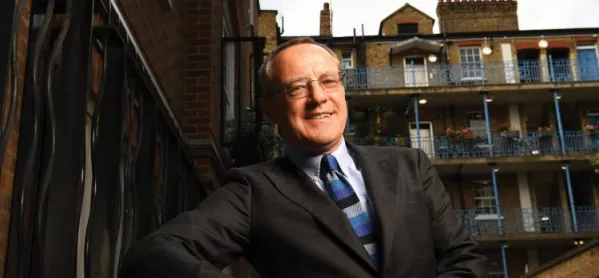GCSE resits in English and maths are placing undue stress on college students, Association of Colleges (AoC) president Ian Ashman has said.
Speaking to TES, Mr Ashman, who has said this year that he would herald in a year of mental health awareness in FE, said that he believed that compelling learners without a grade C in English and maths to retake the subject in college was “wrong”, and that older learners should have the option of modular learning rather than leaving “everything to the end”.
In July, apprenticeships and skills minister Rob Halfon told TES he was “open-minded” about proposals to create a modular “adult GCSE” in English and maths, made in Dame Sally Coates’ report on prison education.
Speaking today, Mr Ashman said: “The generation of students that we’ve got [coming] through in the last few years is the first generation that’s been tested every year since they were in nursery school. So we’ve got this annual cycle each year where you build up... towards tests. And of course one of the features about colleges is that we have more students who have not done so well in their examinations...and particularly those from poorer backgrounds. So their experience is often one of failure.”
Last week, TES revealed that new AoC analysis showed that college students from the most deprived parts of the country make the least progress in GCSE resits for English and maths.
Speaking today, Mr Ashman told TES: “People come to college for different reasons, but [some] are often doing it because they want to get away from academic study, and then they arrive in college and we say to them, ‘Actually, we know you thought you’d left that behind, but we need you to do English and maths and we’re going to examine you at the end of the year’. And we’re right to ask people to study English and maths. But I think it’s wrong; the current conditionality is wrong.”
‘Piling on the pressure’
Mr Ashman also said that a return to modular GCSEs might make it easier for learners to deal with their exams, rather than “leaving it to the end”.
“We could spread it out over several years, and we could do different kinds of examinations, more modular exams where people can build up...rather than having to leave everything to the end. And it could be that we even get people to start those modular courses while they’re in school so that they can do it over a period of time.
“We know that those exam pressures are one of the things that’s causing people stress, and certainly English and maths is causing students some stress. I wouldn’t want to exaggerate it [but]...I think it is piling on the pressure, and I think if we can get qualifications that are more fit for purpose we can take time over the delivery. Then I think that’s a double benefit. One it will help make sure that we can genuinely give people better English and maths skills. And two it will reduce some of that pressure that students are facing.”
Meanwhile comedian Ruby Wax also spoke to delegates about her experiences of mental health, and the pressures placed on students by exams.
“I wouldn’t want to be a kid now. It would blow your brains out,” she said. “All the time you’re having exams. I don’t envy [them].”
FE SPECIAL OFFER: click here to try out a TES Further Education subscription for just £1 for 4 weeks.
Want to keep up with the latest education news and opinion? Follow TES FE News on Twitter, like us on Facebook and follow us on LinkedIn




